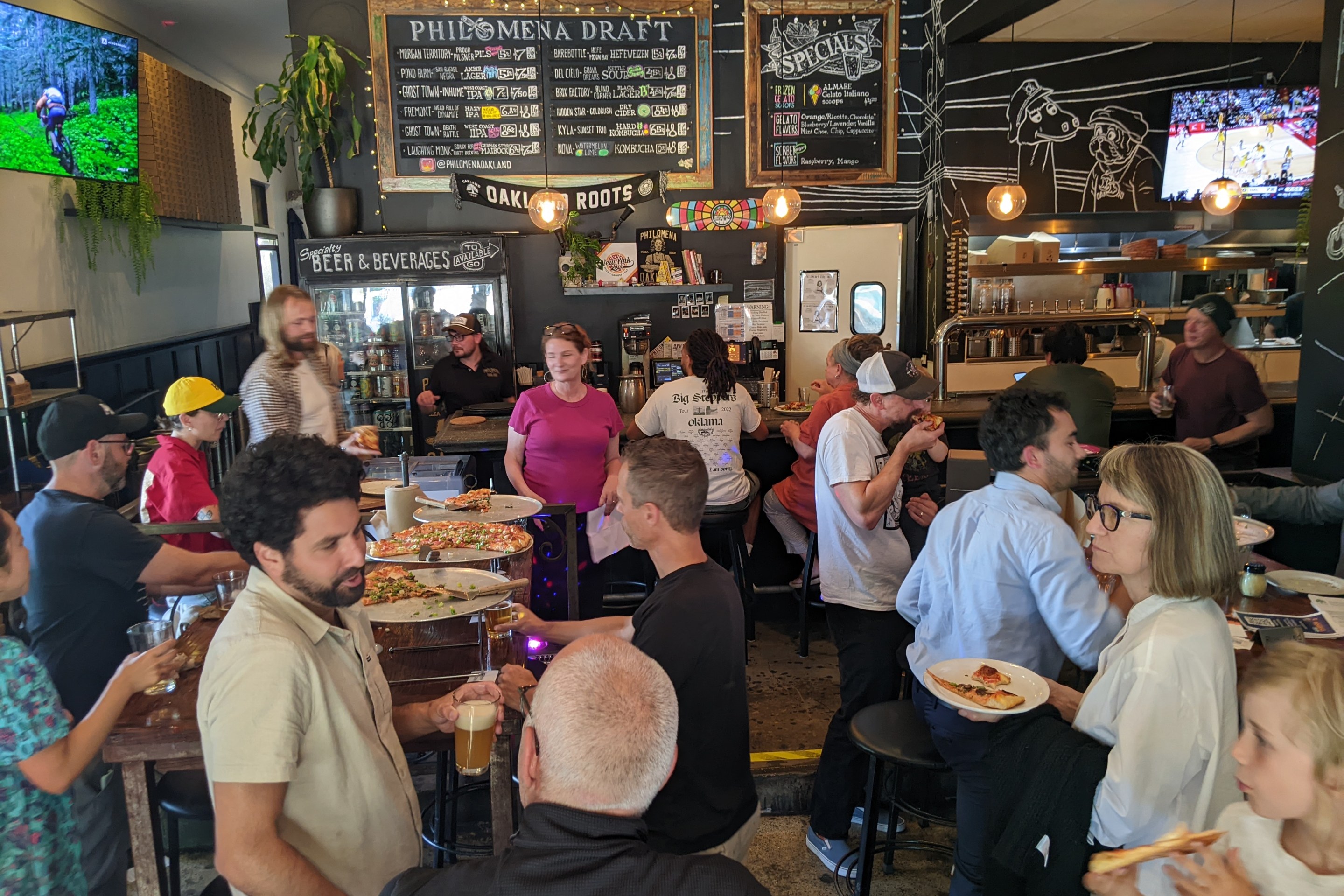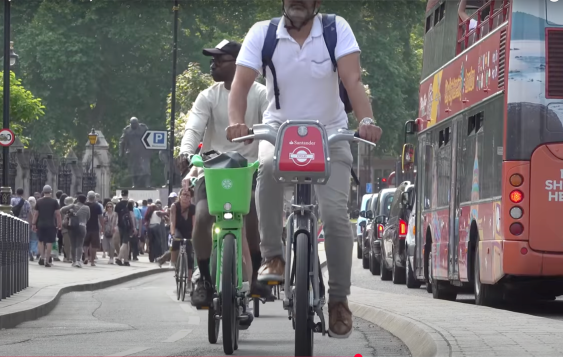The Transportation Planning Board (TPB), the Washington D.C. area's metropolitan planning organization (MPO), recently made a pitch to the U.S. DOT for a share of the economic stimulus law's $1.5 billion in innovative transport grants. Among the suggested projects was $13 million for bike sharing, enough to expand the D.C. program into a regional network that would use wi-fi internet to guide travelers.
 One of D.C.'s bike sharing terminals. (Photo: Streetfilms)
One of D.C.'s bike sharing terminals. (Photo: Streetfilms)How did the TPB make the case for federal help with bike-share expansion? At a Capitol briefing held yesterday by the Environmental and Energy Study Institute, TPB planning director Ron Kirby laid out his numbers [PDF].
TPB
found that expanding bike-share would pay for itself nearly three times
over during the next 20 years, yielding $625 million in benefits at a
cost of $231 million. But Kirby emphasized that the estimated emissions
reductions of more bike sharing represented a relatively small share of
its total benefits.
The project "would not be beneficial on
CO2 alone," Kirby said, adding that the potential time and trip-cost
savings of bike-share played a key role in TPB's proposal.
"Many of these projects have multiple
benefits, and we need to approach it that way," he added.
Kirby
and Caitlin Rayman, assistant secretary for policy at the Maryland DOT,
used the briefing to outline their area's plans to make transportation
networks less carbon-dependent and more efficient.
Rayman,
however, stressed that not every MPO or state DOT has the experience
and skills needed to craft effective plans for cutting transportation
emissions -- plans that would be legally mandated by the pending congressional climate change bills.
Should
the climate bill provision become law, Rayman said, states and MPOs
should receive "technical assistance from the federal government" on
the process. "I can't see [it] being a good strategy for state plans or
MPO plans to get rejected," Rayman said.
With the dialogue in Washington starting to consider a substantial future role for MPOs -- check out Mark Muro, Matt Yglesias, and Streetsblog coverage from last week for more on this -- support appears to be growing for a dedicated federal role in assisting metro area planners.





